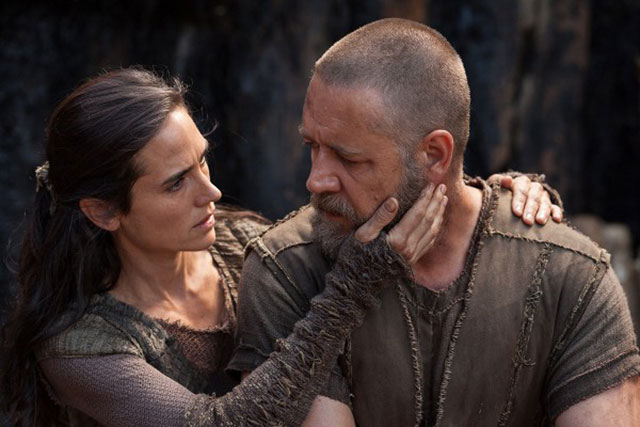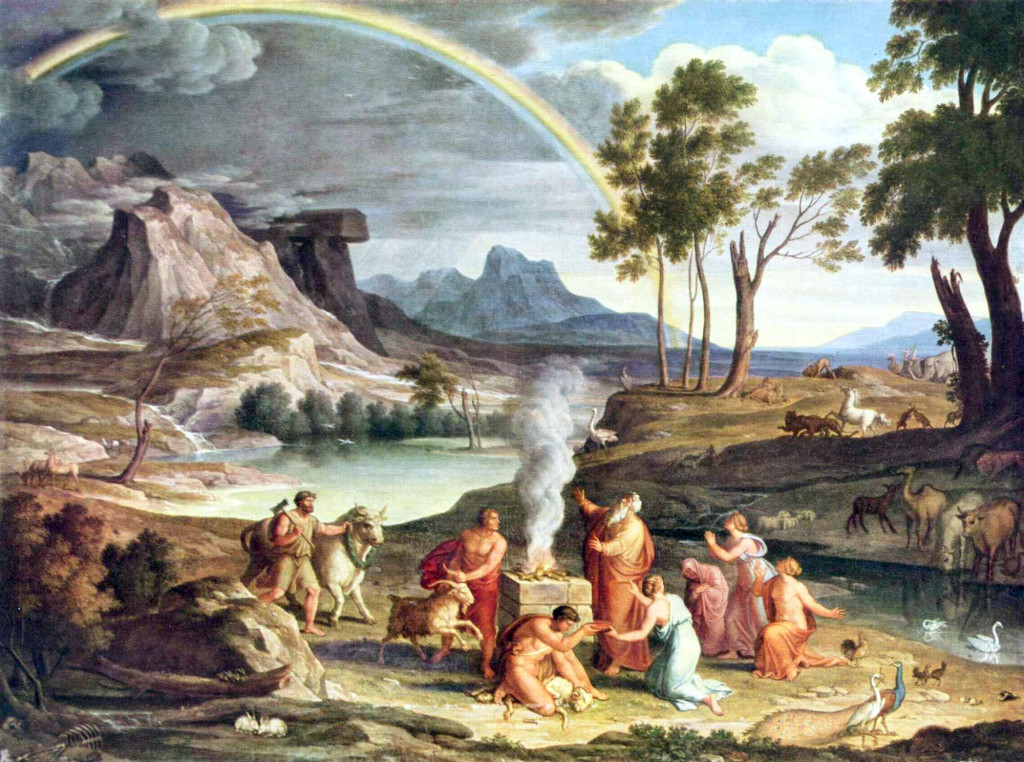Simon’s review of “Noah” – the film
This is titled “Simon’s review of Noah – the film” because my last blog was titled, “Jesus’ review of Noah“. If you haven’t read it, please do, as I talk a bit about the movie (before I had seen it) and I discuss what I think is a fascinating topic – namely, what Jesus said about the original Old Testament story of Noah. If you’d like to read it, CLICK HERE.
About 40 minutes ago I had just finished watching Darren Aronofsky’s new film, “Noah”. I went into the film with a few clear expectations…
1. It was not going to be biblically accurate.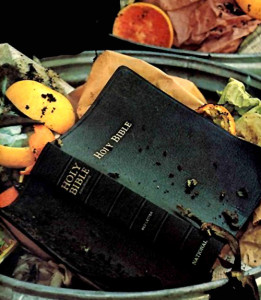
Even Aronofsky called his own film, “the least biblical biblical film ever madeâ€. So there was no way I was going to get offended by the fact they were going to stray from the source material.
2. It’s directed by Darren Aronofsky.
This is the same guy who did Requiem for a Dream  and Black Swan. So, I knew it was going to be a bit weird.
3. Darren Aronofsky is an atheist.
“I’m Godless.” He has said, “And so I’ve had to make my God, and my God is narrative filmmaking.” So I didn’t expect a reflection on biblical themes or a portrayal of “the Creator” (as God is constantly referred to in the film) from the perspective of someone who has an intimate relationship with God.
4. It’s had mixed reviews.
Some have said it’s amazing. Some have said it’s just a bad film. Lots of Christian commentators have critiqued its distortions of the Bible and its message. So I was going in with not very high expectations.
5. There are rock monsters.
These creatures are very loosely inspired by the “Nephilim” from Genesis 6:4. I didn’t know how much of a part they played, but I knew they had been getting lots of flack. So I was at least prepared for their presence in the film.
So, having all that in the back of my mind, I went to see it tonight with my wife, ready for anything. I thought I was prepared. I thought I knew what to expect. I was wrong. Here are a few of the things that surprised me…
(Spoiler Alert! I will be conscious that you may not have seen the film, but I probably will reveal a few details that you do not get from the trailers. I’ll try not to spoil anything that would spoil the experience if you do go see it)
1. I hated the rock monsters.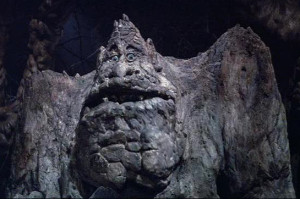
Not because they were an unbiblical and unnecessary silly addition to the film. I just thought they looked crap! I can cope with an atheist butchering a bible story. What I can’t cope with, in this day and age, is an esteemed director like Aronofsky letting such shockingly bad CGI get on the silver screen! They looked like they were either puppeteered against a green screen or done with stop motion! Maybe they were animated in that way to pay tribute to Ray Harryhausen (the master of stop motion monsters) who died last year. Personally, I think they added very little to the film and were more of a weird distraction that made me feel like I was watching Jim Henson’s “Labyrinth” at times. Hey, Jennifer Connelly was the lead actress in both those films so maybe it was intentional!
2. It was pretty cool.
It had a consistently interesting and cinematic look to it. The costumes were cool, the sets were cool, the acting was cool, the actors were cool, the sound effects were cool, the visual effects (apart from the rock monsters) were cool. It was a cool movie. Well worth seeing on the big screen for the visual feast that it was.
3. It wasn’t at all Godless.
I had heard some criticisms that God is absent in the film just because the word “God” is not used. But the “Creator” (as God is called) is not only mentioned throughout the film, he clearly and unambiguously makes things happen. I was worried they were going to sort of make out that it was all in Noah’s head. Now, sure, he received the message to build the ark through dreams (whereas in the Bible God just speaks to Noah), but God is very clearly acting when a forest miraculously appears and all the animals come to the ark and the worldwide flood comes along. Even the rock monsters are evidence of a divine being. There’s no hint that Noah is just making it all up or it was just a localised flood or something like that to turn it into a Godless story. God is depicted as just and merciful, directly active and working through the lives and choices of people. There is a reoccurring theme of characters asking why God is silent (it’s mentioned by at least three separate characters), which was disappointing because that’s the exact opposite of what the original story says, but at least God was present throughout. If you know your Bible, he was a lot more obvious in this film than he is in the Book of Esther, that’s for sure!
God’s direction and command was an interesting theme in the film I thought. When Noah is given the command to build the ark because the flood is coming, that is all pretty clear (albeit given through a series of dreams). And it’s the right thing to do, no question. But later (spoiler alert) when Noah feels that because humans are so sinful, even he and all his family should not be spared and so he plans to kill his granddaughter so the human race will die out, 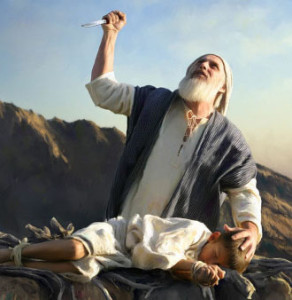 there is no dream from God. There is a sort of dream sequence where he sees the evil of mankind and realises that he and his family have the seed of evil in them as well, but the idea that everyone must die to save the earth, is one mission that he concludes on his own. He feels that that is what God wants him to do, but everyone else disagrees with him and he has no vision or sign to prove otherwise. Just is own convictions. It has echoes of Abraham being commanded to kill his son Isaac, just without the command.
there is no dream from God. There is a sort of dream sequence where he sees the evil of mankind and realises that he and his family have the seed of evil in them as well, but the idea that everyone must die to save the earth, is one mission that he concludes on his own. He feels that that is what God wants him to do, but everyone else disagrees with him and he has no vision or sign to prove otherwise. Just is own convictions. It has echoes of Abraham being commanded to kill his son Isaac, just without the command.
I thought it was great reminder to not just conclude what God might want you to do when he has not given you instruction on the matter – especially when it comes to something you can’t take back, like killing someone! I’ll try not to spoil what he does with his moral dilemma, but I was a bit disappointed with how they handled it. There were lots of opportunities for the message that “mercy triumphs over judgement” (James 2:13) to shine through, from the rock monster who asks God for forgiveness and then is saved, to the act of a character being healed from her barrenness, to the perfect provision of the girls (it’s a bit creepy but you have to see the film to understand the point of that one). But in the end, it all sort of got watered down to, “mercy only triumphs over judgement when it’s mercy for your own cute granddaughters that you’re feeling loving towards”.
4. It was all about how sinful humans are.
Now, some have criticised the film for being just environmentalist propaganda, and sure it laid it on pretty thick especially with Noah and his family all being vegetarians (though correct me if I’m wrong, but were they wearing leather?). Despite this, the idea of humans destroying the earth was just one of the ways that “Man” is shown to be corrupt. They rape, steal, kill, covet and generally are just plain bad… except the girls of course. Interestingly, the women are all good in this film. There was not one really evil woman in the entire story. But that aside, the theme of how bad we really are, was scattered throughout. The flood itself is seen as a just judgement for mankind’s wickedness. The big question that is raised, is “Are Noah and his family innocent?” At first Noah is content to ride along with the animals (who are deemed innocent because they live as they did in the Garden of Eden), but about half way 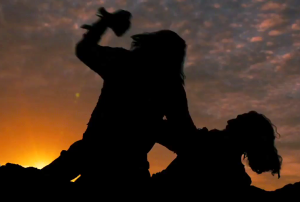 through the film, he realises that even he and all his family have mixed motives and sinful inclinations. His wife tries to get him to see that there is also good in all of them as well (I had flashbacks of Luke Skywalker trying to convince Darth Vader), but he concludes that the world would be better off without us. Even in the end, when it doesn’t all end in humanity’s extinction (shock horror), Emma Watson’s character asks him to stick around and not kill everyone so he can be a grandfather and help us all be better this time.
through the film, he realises that even he and all his family have mixed motives and sinful inclinations. His wife tries to get him to see that there is also good in all of them as well (I had flashbacks of Luke Skywalker trying to convince Darth Vader), but he concludes that the world would be better off without us. Even in the end, when it doesn’t all end in humanity’s extinction (shock horror), Emma Watson’s character asks him to stick around and not kill everyone so he can be a grandfather and help us all be better this time.
The funny thing is, we know the rest of the story! Noah’s descendants are not much better! The whole point of the environmentalist theme is to convict us about the fact that we still kill and ravage the planet and we are still full of sin and conflicted desires. The question of the “goodness” of humanity is sort of concluded with a message like: “HUMANS – WE REALLY ARE SINFUL, BUT WITH LOVE IN OUR HEARTS WE DESERVE ANOTHER GO”.
Now, if you know the original story, this has elements of the truth. Noah is described as a “righteous” man, but this doesn’t mean he was perfect. It means he was “right with God”. But he was still sinful, and so was all his family. This is most clearly shown in the fact that the very first thing they did when they got out of the ark was make a sacrifice. (see Genesis 8:18-21) That’s right! They killed an animal and offered it as an act of humility and appeal to God for mercy. And God responds to their sacrifice by promising not to wipe everyone out with a flood ever again “even though every inclination of the human heart is evil from childhood” (Genesis 8:21). Nothing has changed in the human heart by the end of the biblical story. God’s justice and mercy has been clearly shown, but mankind’s sin remains the same. That’s why the sacrifice was needed.
In fact, the sacrificial system (though only a new thing back in Genesis) was a bigger part of the Noah story than people realise. It definitely was completely skipped in Aronofsky’s version of the story. You see, Noah wasn’t actually told to put two of every kind of animal in the ark. Check out Genesis 7:1-4. He was told to put two of every kid of “unclean” animal, but he had to put SEVEN of every kind of “clean” animal. Why more “clean” animals? Because they were the ones you were allowed to sacrifice. Even before the flood came, the biblical story tells us, God was providing a way for Noah and his descendants to remain in righteousness (right relationship with God). It wasn’t through being more good than bad. It wasn’t through puttin’ a little love in your heart. It was through sacrifice and the mercy of God. It’s actually the sacrifice of a “clean” animal in the place of an “unclean” sinner, that makes way for God’s mercy to a people that actually deserve judgement. This theme is carried all the way through the bible and is ultimately fulfilled in the one person the whole system was pointing to – Jesus. The original story of Noah concludes with the message that “mercy triumphs over judgment through sacrifice”. Which is a very simplistic, but accurate, description of the New Testament gospel.
I wasn’t surprised the Aronofsky missed this message in his film, but I was surprised of how much he explored the theme. Apart from his weak ending, I thought he explored it well and raised great questions and moral dilemmas about the sinfulness of the human heart and whether we can overcome it.
5. My last surprise is that I can heartily recommend this film.
Now, if you’re the sort of person who gets offended by films like “Life of Brain” and “Constantine” due to their biblical inaccuracies, then give it a miss. On the other hand, If you’re the sort of person that bases your knowledge of the bible on films like “The Da Vinci Code” and “End of Days”, then please also give it a miss. Remember Aronofsky’s comment that it’s “the least biblical biblical film ever madeâ€Â and just go read the Bible itself. Noah’s story is only 4 short chapters (Genesis 6-9).
But if, like me, you are interested in what a weird atheist director like Darren Aronofsky might do with a tale like Noah, and you’re fascinated by how the world explores issues like judgment, mercy, love, sin and human nature, then you don’t have to boycott this film to make some sort of protest. If you have the ability to think and critique and discuss and reflect, then go see this film with a big bag of popcorn and a good friend to chat about it afterwards!
(3841)
